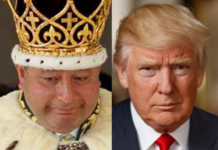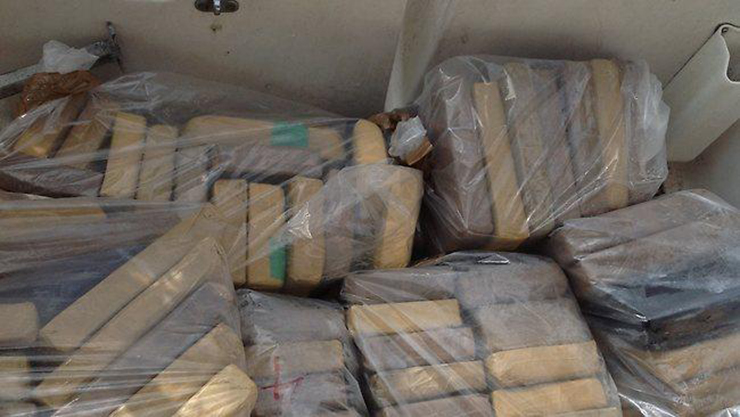More than 80 years after it came into force, some Tongans are not familiar with the kingdom’s suspension of business activities on Christmas Day and Good Friday law.

Some people have no knowledge that these two special days must be treated in the same way as Sunday under the law.
There appeared to be a significant number of people who had been taken by surprise after Kaniva News reported this week an incident in Vava’u in which the police had arrested a man for swimming in the sea on Monday’s Christmas Day.
The arrest had been criticised as unfair after it was reported that a Lulutai aircraft was conducting flight services between Vava’u and Tongatapu on the same day.
The Vava’u police did not respond to question asking why the aircraft was flying on Christmas Day.
The Minister of Police has the power to grant an exemption to the law in a state of emergency.
Some people responded to our story and said the only day they were aware of which prohibited businesses in the kingdom was on Sunday.
Some said they used to go to their plantation and planted kumara on Christmas Day as they believed it was the day in which the crop grows best.
There were also reports that people on Tongatapu as well as at other beaches on Vava’u and other islands gathered at beaches on Christmas Day for picnic and swimming.
Some criticised the arrest made in Vava’u saying why other people swimming at seas on Christmas were not arrested or charged if police were doing it according to the law.
Some even posted photos which purportedly showed people swimming at beaches on Christmas Day.
However, a copy of the law is published on the Attorney General’s website under the heading Suspension of Business on the Christmas Day and Good Friday order.
It was first introduced in 1937 by the Late Queen Sālote Tupou III.
The law says that Christmas and Good Friday must be observed throughout the Kingdom as days on which business activities are illegal.
However, as a Public Holidays Act, section 6 grants an exemption which allows the sale of bread, fresh milk, fresh fish and fresh meat but no later than noon.
The law is copied verbatim below:
Suspension of Business on Christmas Day and Good Friday Order
Made by Her Majesty in Council on 22nd December, 1937.
In exercise of the powers vested in Her by the Public Holidays Act and with the advice of Her Privy Council Her Majesty Queen Salote Tupou, D.B.E., is pleased to order, and it is hereby ordered that Christmas Day and Good Friday being days specified in section 2 of the Public Holidays Act shall until further notice be days to be observed throughout the Kingdom as days on which business (other than the sale of bread, fresh milk, fresh fish and fresh meat) shall be suspended in terms of sections 3 and 4 of the said Act.
You can also get access to this law by clicking on this link.
What do sections 3 and 4 of the Public Holiday Acts say as mentioned in the Suspension of Businesses on Christmas Day and Good Friday order?
Section 3 stipulates that it is illegal for any business transactions to happen on Christmas Day and Good Friday while section 4 says that the Cabinet could make changes to this law.
The sections are copied verbatim below:
3 Public holiday to be dies non
No person shall be compelled to make any payment or do any act upon any of such public holidays which he would not be compellable to make or do upon a Sunday and the making of such payment and doing such act on the day following such public holiday shall be equivalent to payment of the money or performance of the action on such holiday.
4 Compulsory closing of stores by Order
It shall be lawful for Cabinet by Order from time to time to direct that all stores, shops and other places of business in all towns throughout the Kingdom or in any one or more of such towns as may be specified in the order shall be and remain closed upon any one or more of the days specified in section 2 hereof or upon any such special day or days as Cabinet by Order shall appoint to be kept as public holidays.
6. Exemptions
There shall be excepted from the operation of the last preceding section —
(a) the sale of any drugs or medicines;
(b) the sale of bread, butter, fresh milk, fresh meat, fresh fish and ice not later than noon;
(c) the sale of refreshments in any ice cream stores, tea or refreshment rooms;
(d) the sale of any article required for the burial of a dead body
You can also get access to the Public Holidays Act by clicking on this link.
Most of our concerned readers were well aware of the constitution clause 6 which bans any commercial activities on Sunday. However, there was no mention of the Christmas Day and Good Friday in the constitution and this is where most of the confusion came from.
It must be noted that in the same clause 6 of the constitution, it clearly refers to an exceptional law. That exception refers to the Public Holidays Act in which its sections 2, 3, 4 and 6 as well as the Suspension of Businesses on Christmas Day and Good Friday law are being mentioned above.
The constitution:
6 Sabbath Day to be kept holy.
The Sabbath Day shall be kept holy in Tonga and no person shall practise his trade or profession or conduct any commercial undertaking on the Sabbath Day except according to law; and any agreement made or witnessed on that day shall be null and void and of no legal effect.
You can also get access to this clause of the constitution by clicking on this link.







